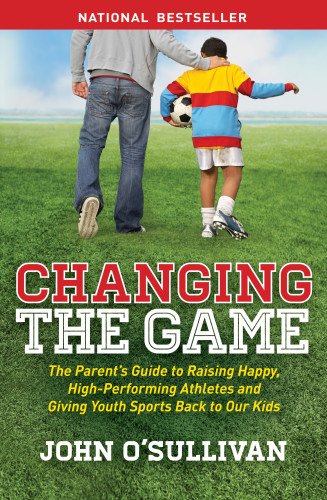Great Information for Soccer Parents and Youth Soccer Coaches
John O’Sullivan – Part I
What really needs to change in youth soccer? John O’Sullivan has transformed the youth soccer political landscape across the country and continues to raise the bar — Changing the Game for the good of the sport and those kids playing the beautiful game.
John O’Sullivan is a former collegiate and professional soccer player and speaks nationwide to coaches, parents and youth soccer players. O’Sullivan has coached for more than two decades at the youth, high school, and college level.
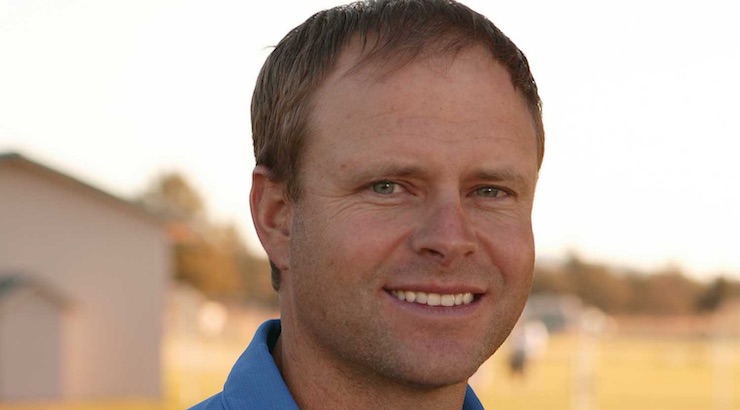
READ: YOUTH SOCCER – FUN AND COMPETITION CAN GO HAND IN HAND Part II
Originally from New York, O’Sullivan is a 1994 graduate of Fordham University, where he was the team captain and a member of the 1990 Patriot League Championship team.
After playing professionally in the USL for the Wilmington Hammerheads, O’Sullivan became the Varsity Boys Soccer Coach at Cardinal Gibbons HS and then became the Assistant Men’s and Women’s Soccer Coach at the University of Vermont. As the Director of Coaching for Nordic Spirit SC and the Executive Director of Oregon Rush Soccer Club and the Central Oregon Regional Training Center Director for the Portland Timbers, O’Sullivan has decades of experience in youth soccer. He holds his USSF A License.
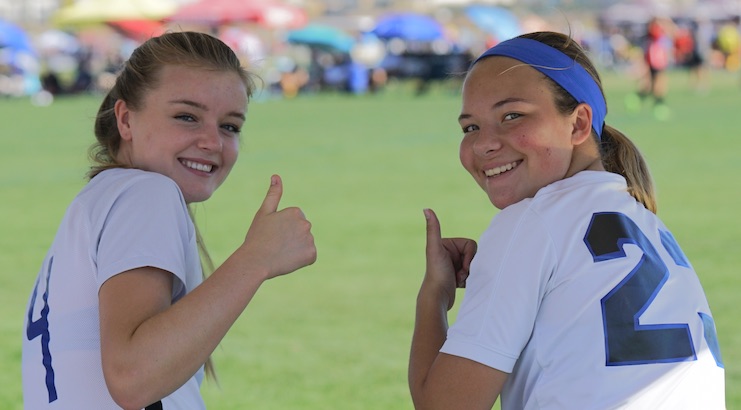
If you are involved in the youth soccer game in any way or thinking about having your children play the beautiful game — you should read this article.
Keep two important ideas in mind:
- The single greatest effect on performance is an athlete’s state of mind
- Youth sports used to be about children competing against other children; now it is often adults competing against other adults through their children
John O’Sullivan’s book CHANGING THE GAME is a parent’s guide to raising happy, high performing athletes and giving youth sports back to our kids. Founder of the Changing the Game Project, O’Sullivan believes youth soccer should be fun and that players should want to go to practice, loving the careful guidance they receive from their coaches.
What is really happening on the fields in America?
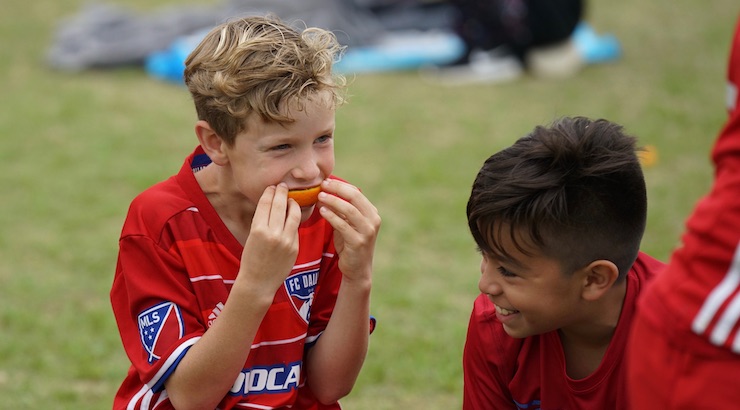
From tirelessly supporting a positive approach to player development to stressing that we all should remember that only a tiny few will ever make it to the professional level of soccer, O’Sullivan champions the regular American youth soccer player — those very same kids who will grow up to become passionate fans supporting the sport or turn away from the world’s favorite because of a negative experience with a coach.
We are raising the future supporters of soccer — not only looking for the few talented players who can be developed into ‘homegrown’ talent to help the USA win the World Cup.
SoccerToday Interview with John O’Sullivan
Diane Scavuzzo: What is the biggest challenge in youth soccer today?
John O’Sullivan: We have lost patience. We want more, more, and more at younger and younger ages.
I believe the biggest challenges are barriers to entry due to the high cost and the prevalence of travel and “elite” soccer at far too young ages.
We are excluding kids because of costs and asking families to travel way too far for games that could be played close by if we just stopped being so infatuated with gathering the “best of the best” so young.
The countries that outperform us do not cut 8 year olds, they train them and see what happens. We need patience.
Diane Scavuzzo: What needs to change?
John O’Sullivan: I thought the new age group mandate was a perfect chance for US Soccer to implement age group play at U12 when we go to full-size games.
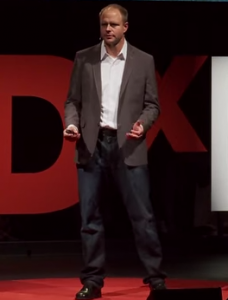
Founder, Changing the Game Project
Then, there could be a dividing line, team results mean nothing prior to 12, as they should not. Youth soccer clubs need to create in-house and local leagues. Clubs also need to reduce costs and have good coaches training with our youngest players. And, train them all, not just a select few.
Diane Scavuzzo: Is youth soccer very different in America than the rest of the world and why? How does this have an impact on the dilemma of parents and coaches pushing kids to perform?
John O’Sullivan: Yes, our Pay-To-Play model is not unique, but it is certainly the most expensive. Other countries do not have a school sport, so they subsidize community sports clubs.
Once you write big checks, you want results, and we often look to wins and losses instead of player development to judge success. Coaches get caught in the crossfire, and soon its “just win, baby”
Development is a marathon, not a sprint.
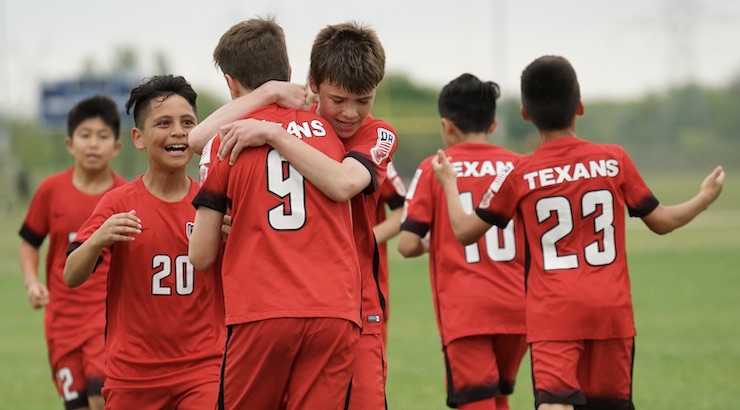
Diane Scavuzzo: Do American parents fear failure more than their counterparts in Europe?
John O’Sullivan: No, I do not think so, but we certainly live in a world where we make our triumphs very public via social media. We watch our pint-sized sports stars doing extraordinary things, and think “Why doesn’t my kid do that. What is wrong with my DNA?”
Do we want success? Yes. We all feel it when our kids struggle. I feel it, and our inclination is to intervene, which is exactly the opposite of what you should do if you want to prepare your kids for life.
Diane Scavuzzo: How do you help your child learn from failure?
John O’Sullivan: Stop making such a big deal about it, and ask “What is good about this?”
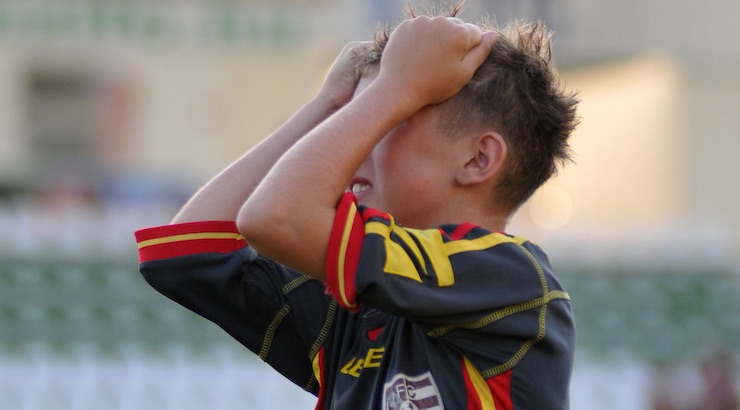
Diane Scavuzzo: Is losing a game a failure?
John O’Sullivan: If you are winning all your games you are failing, because you clearly are not playing the right level of competition.
Split your top players up and form 2 teams, or play up a year – do something different. If you are not losing you are not learning.
Diane Scavuzzo: How can parents and coaches work better together?
John O’Sullivan: Trust is missing. Too many people think trust is all about ability, but it is not. It is about connection, accountability, and reliability. Until we do a better job establishing trust, there will always be conflict.
Diane Scavuzzo: What is the difference between teaching your child not to overcome obstacles and not quit in the middle of a season and pushing your child to perform on the field?
John O’Sullivan: Fulfilling a commitment is not a goal, it is an expectation unless a situation exists that is dangerous physically, emotionally, and/or mentally.
Remind your kids that they made a commitment, and at seasons end, you can stop. That is parenting.

